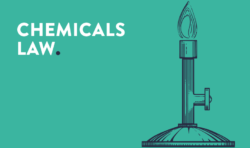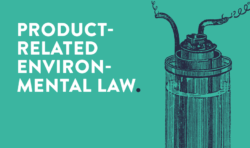These guidelines aim to give guidance for the application of regulations 7 and 7A of the Extended Producer Responsibility Regulations (GN 1184 of 5 November 2020) (the “EPR Regulations”). The regulations stipulate that a Producer Responsibility Organisation (“PRO”) that establishes an extended producer responsibility fee or a producer that establishes its own scheme, must ensure a financially effective extended producer responsibility scheme. The Draft EPR Guideline provides a realistic way of determining the EPR fees by using the criteria which includes but is not limited to the weight of the product, administrative costs, ease of recyclability, and nett cost recovery. The EPR Regulations ensure that producers are responsible for the entire lifecycle encompassing the design, production and disposal phase of the product they place on the market. Currently, the paper and plastic packaging, electronic and electric goods, as well as portable battery industries, are required to comply with the EPR Regulations, with more industries to be included in the future.
Key guidelines
The Draft EPR Guideline presents four globally accepted methods for determining EPR fees in South Africa, PROs and producers in choosing the most appropriate method, depending on their stage of sector development, product categoriesand specific needs.
- The flat-fee method applies a fixed fee to a product category, lessening the administrative burden on PROs, but it does not consider the differences in the actual products or the management costs.
- The modulated fee method considers the differences in the cost of waste management and sets the fee depending on how easy or difficult it is to recycle, reuse, and repair the product.
- The eco-modulated fee method encourages the usage of environmentally sustainable materials by incentivising environmentally conscious designs and penalising the use of harmful materials.
- The take-back method consists of deposit-refund schemes and product-return schemes. This method encourages producers to ‘take back’ the products that are at the end of their lifecycles to ensure the safe disposal of such products.
The fees may be adjusted annually to align with the Consumer Price Inflation or every three and/or five years to take into account the progressive increases in collection, recycling and other targets. The flexibility of the Draft EPR Guideline demonstrates that, as is the case with a guideline (no force of law), it is neither mandatory nor legally enforceable as it intends only to guide PROs and producers when implementing regulations 7 and 7A of the EPR Regulations.
This presents a challenge because PROs may still choose other fee determination approaches and may still adjust the fees under conditions that might not be equitable or proportional to all members (producers) of the PRO.
Conclusion
Whilst the Draft EPR Guideline aids in determining fees and ensuring transparency and standardisation, it does not address the many prevailing issues that stem from the EPR Regulations. Further amendments to the EPR Regulations may be required to confirm issues such as retrospective application of EPR fees for late joiners of a PRO, frequency of EPR fee payments and a mechanism for challenging a determined fee set in a PRO.
Interested parties have until 4 March 2024 within which to make representations or submit comments regarding the Draft EPR Guideline to the Department of Forestry, Fisheries and the Environment by email, hand or post.
Produktkanzlei has a broad network of international cooperation partners. This article was written by Stephen Levetan, Carlyn Frittelli Davies and Fortune Shanduka from the leading African law firm ENS, with whom we have been cooperating on product law issues in South Africa for many years. ENS’ Natural Resources and Environment team is available to assist should clients be affected by the EPR Regulations. You can reach out to Stephen Levetan, Carlyn Frittelli Davies and their colleague, James Brand, with the following contact details:









